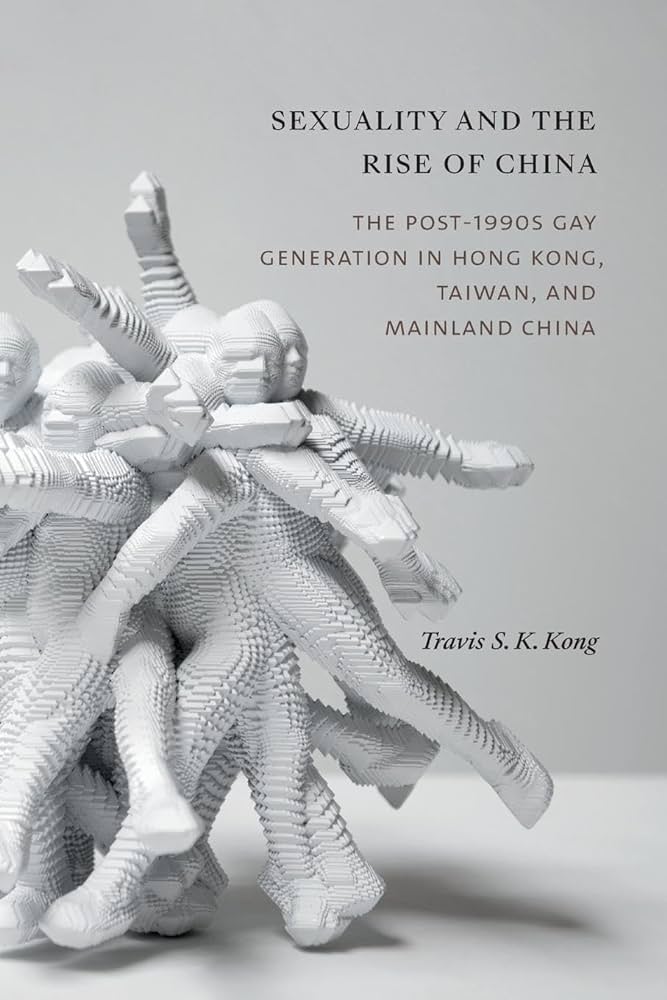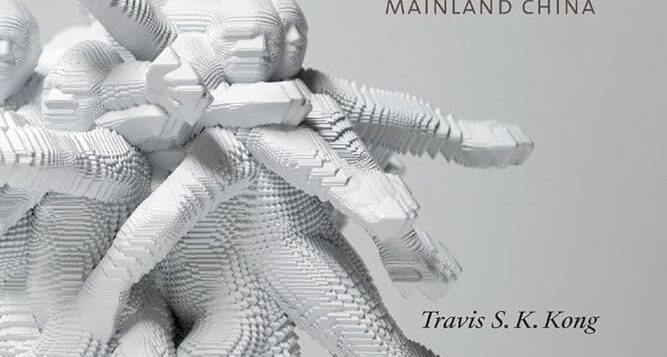 SEXUALITY AND THE RISE OF CHINA
SEXUALITY AND THE RISE OF CHINA
The Post-1990s Gay Generation in Hong
Kong, Taiwan, and Mainland China
by Travis S. K. Kong
Duke Univ. Press. 257 pages, $25.95
SEXUALITY and the Rise of China, by Travis S. K. Kong, reminds me of two books that I reviewed in these pages in 2015: Petrus Liu’s Queer Marxism in Two Chinas, and Tiantian Zheng’s Tongzhi Living: Men Attracted to Men in Postsocialist China. Like the latter, it is based on interviews—in Kong’s case, with ninety subjects in Hong Kong, Taiwan, and mainland China. And, as in Tongzhi Living—tongzhi. which once meant “comrade,” increasingly refers to gay men in Chinese—excerpts from the interviews are by far the liveliest portion of the book. The rest is sociology.
Even the pressures faced by young gay Chinese men (the average age of the subjects was 24) will be familiar to those who read Tongzhi Living: the pressure to marry to please one’s parents and to fulfill societal expectations. Indeed, the past eight years seem to have brought about little change on a personal level. Nevertheless, Professor Kong claims that young men in Taiwan, Hong Kong, and mainland China who were born after 1990 are living in a “markedly different era of sexuality from that of previous generations. The Western medical model that had constructed homosexuals as mental patients or social deviants is now far less influential in the three locales, although it still carries power.”
In fact, things have been different for gay men in China for quite a while now. The criminalization of homosexuality by the British in 1842 in Hong Kong was reversed by the colonial government in 1991. On the mainland, the charge of “hooliganism” that was used to prosecute gays was deleted from the criminal code in 1997, and the Chinese Psychiatric Association removed homosexuality from the category of mental illness in 2001. In Taiwan, the charge of “offending virtuous customs” was dropped in 1991, and in 2019 gay marriage was legalized. Meanwhile the pink economy (gays in the media, gay businesses) has spread in all three places. Taiwan has the most established tongzhi world, and they are proud of it. The Gay Pride celebration in Taipei now draws gay men from all over southeast Asia. In Hong Kong, there has been a Pride Walk since 2008 and a Pink Day since 2014, and this year the former British colony hosted the Gay Games,
But the mix of tradition and homosexuality still intrigues the Western reader—a mix so startling that some of the interviews upend any ideas that such a reader may have formed about the combination of same-sex desire and Confucian ideals of family. Sometimes clichés are confirmed, at other times, upended. Consider, for example, the way a young working class man named Yojo came out to his parents.
Andrew Holleran’s latest novel is The Kingdom of Sand (Farrar, Straus and Giroux, 2022).







